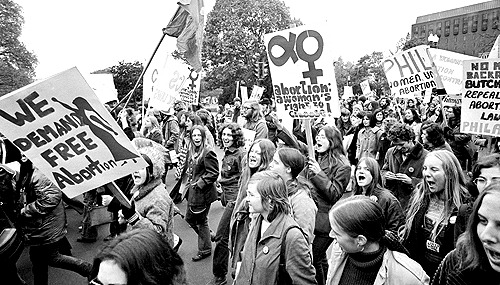


January 22, 1973: The Supreme Court delivers its decision in Roe v. Wade.
On this day forty years ago, the Burger Court handed down one of the most famous and controversial Supreme Court decisions in the nation’s history. In 1970, Norma L. McCorvey filed suit in a U.S. District Court in Texas under the alias “Jane Roe” after trying and failing to obtain an abortion, both through legal and illegal means, and later that year her case reached the Supreme Court. At the time, abortion was illegal in thirty states, available under certain circumstances (like incest and rape) in twenty, and fully available at request in only Washington, New York, Alaska, and Hawaii. In Texas, a statute forbade women from acquiring abortions except in cases where the mother’s life was at risk.
The Court ultimately voted 7-2 to strike the Texas law down, establishing in the Court’s eyes abortion as a fundamental constitutional right. The usually conservative Chief Justice Warren Burger voted with the majority, which argued (in an opinion written by Harry Blackmun) that most state laws restricting abortion violated a woman’s right to privacy. Justices White and Rehnquist dissented.; White wrote that he could “find nothing in the language or history of the Constitution to supported the Court’s judgment”. Endlessly controversial, Roe v. Wade divided the public forty years ago and continues to do so today. Norma L. McCorvey/”Jane Roe”, the woman at the center of the entire case, notably converted to Christianity in 1994 and became a spokesperson for the anti-abortion movement.